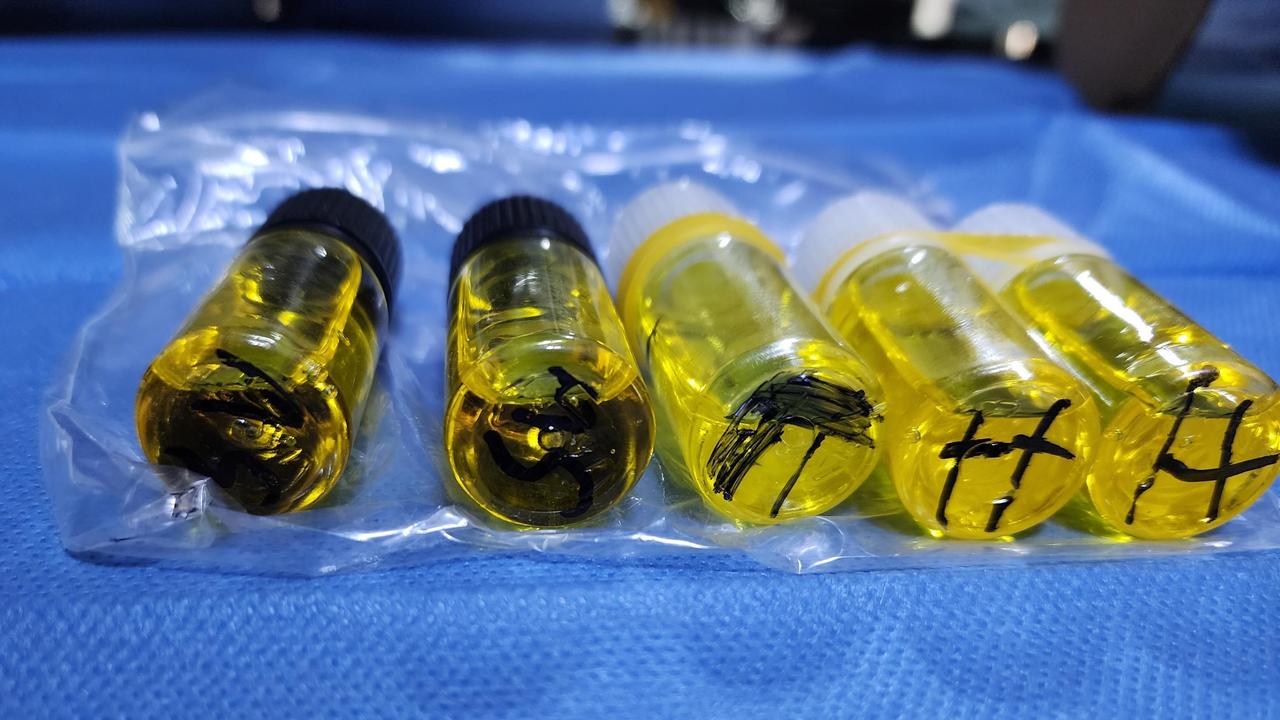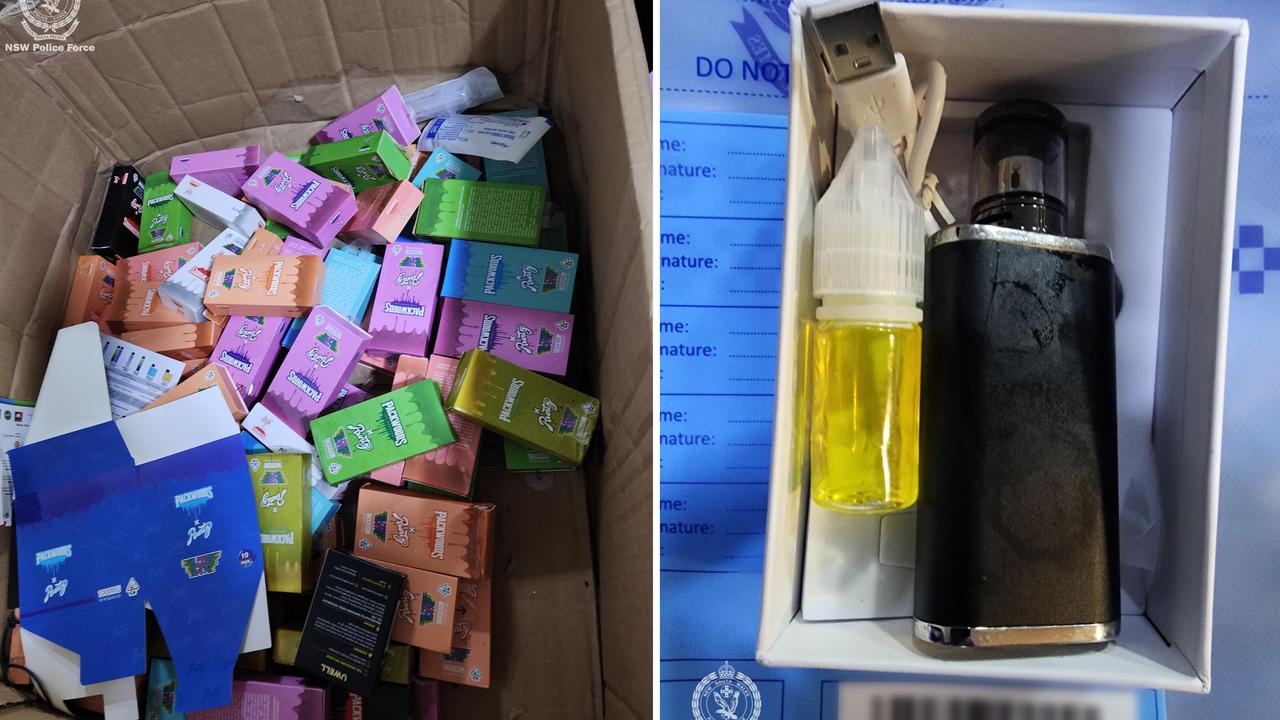
The potential of another serious drug charge has further delayed a young man's bail bid after allegedly selling "supercharged" vapes to unknowing customers.
Sam Al-Roubaye, 20, was allegedly involved in the preparation and distribution of more than 1.36kg of in vape liquid vials containing nitazenes, synthetic opioids 200 times more potent than morphine.
The vials allegedly did not advertise the presence of nitazenes when spruiked on social media which led to customers unknowingly administering the powerful synthetic opioid.
Prosecutors on Thursday sought to delay Al-Roubaye's bail application in the NSW Supreme Court, citing the expectation another drug supply charge would be laid.
A new charge of supplying a large commercial quantity of the drug was being prepared after a search discovered more than five kilograms of the nitazenes present in vegetable glycerin, prosecutor Albert Cheng said.
Just two millilitres of the highly addictive substance can be lethal, police said at the time of Al-Roubaye's arrest in August.
Prosecutors outlined the alleged sophisticated drug-dealing operation in court documents tendered in opposition to his bid for bail.
The supply chain allegedly involved pre-prepared night-time "dead drops" of vials that would be placed inside resealable bags and hidden in public places in southwest Sydney.
Customers would then get in contact to buy vials and once payment was made to a cryptocurrency wallet, they would receive a video of the location of the drugs, prosecutors say.
Al-Roubaye received funds into his bank account for the sale of the vials, some of which had traces of DNA matching his profile, police allege.
They are also still trying to determine whether Al-Roubaye has access to the cryptocurrency wallet allegedly containing hundreds of thousands of dollars from the sale of the vapes.
"Those funds are not frozen and the police do not have access ... police assume (Al-Roubaye) has access to them," Mr Cheng said.
Police were investigating with cryptocurrency firm Binance as to whether Al-Roubaye could access the funds if he was released.
But his barrister has said the charges laid by police and the allegations outlined in the court documents were at odds with each other.

Ben Barrack argued his client didn't have access to the cryptocurrency wallet and was only accused of dealing with proceeds of crime totalling just over $27,000.
"The applicant was effectively, on the prosecution case, working as a packager and courier of the drugs for another person," he said on Monday.
But the prosecutor contended Al-Roubaye was embedded in the operation and there was a "serious risk" to the community if he is released on bail.
He is currently charged with supplying a commercial quantity of a drug and knowingly dealing with the proceeds of crime, and is yet to enter a plea.
Justice Michael Ierace agreed a bail decision could not be made without the full facts of the new charge and the cryptocurrency access issue, setting down a new hearing for September 26.
The arrest of the 20-year-old marks the first time someone in Australia has been charged with supplying vape liquid tainted with nitazenes.







